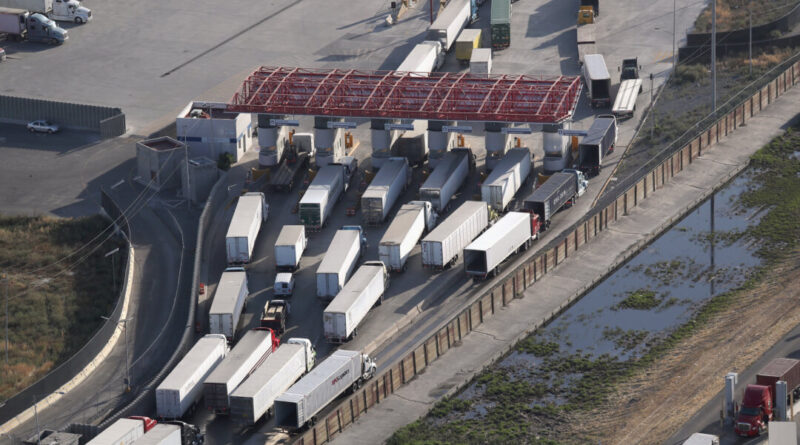Trump Administration Investigates Truck Imports, Citing National Security Concerns
In 2023, the United States imported over 14 times as many trucks and buses compared to 2007, with nearly 90 percent of these imports originating from Mexico.
The investigation, which commenced on Tuesday, will review the imports of “medium-duty trucks, heavy-duty trucks, and medium- and heavy-duty truck parts, and their derivative products,” according to the notice.
This inquiry is being conducted under section 232 of the Trade Expansion Act of 1962, which grants the U.S. president broad authority to regulate imports if they are deemed to pose a threat to national security. This provision enables the president to implement measures such as tariffs to address such issues.
“Safeguarding U.S. national security and economic interests continues to be the President’s foremost priority, and this investigation will help protect American truck manufacturing,” it added.
The notice has invited public comments on this matter.
The Department of Commerce is “especially interested” in receiving comments and information regarding the current and projected demand for trucks and parts in the United States, the capability of domestic production to meet that demand, and the role of foreign supply chains, as indicated in the notice.
Additionally, the department seeks insights into the “economic impact of artificially low prices of trucks and truck parts resulting from foreign unfair trade practices and state-sponsored overproduction,” along with the “effects of foreign government subsidies and predatory trade practices on the competitiveness of the medium- and heavy-duty truck industry in the United States,” the notice stated.
Comments must be submitted within 21 days following the notice’s publication in the Federal Register, which is set for April 25.
Trucking Industry Impact
As detailed in a January 25 analysis by the Economic Policy Institute (EPI), loopholes in the U.S.–Mexico–Canada Agreement (USMCA) have allowed foreign products to enter the United States under the guise of being “Made in North America.”
USMCA has also permitted companies to suppress wage demands domestically by threatening to shift production to Mexico, as stated by the EPI.
“U.S. truck and bus manufacturers are facing increased competition from lower-wage countries, subsidized imports, and corporate offshoring,” the analysis noted.
“In 2023, the U.S. imported over 14 times the number of trucks and buses (342,000 units) than it did in 2007—11,100 units more than were produced domestically, with nearly 90 percent of these imports from Mexico.”
“Alongside immediate retaliatory measures from Canada and Mexico, the tariffs could significantly influence the trucking industry, potentially dampening short-term truck volumes and reshaping commercial vehicle manufacturing over time,” stated S&P.
“On the brand front, the connections to manufacturing plants in Canada and Mexico vary considerably. For instance, Ram has 100 percent of its production in Mexico, while the Volvo brand has none in Mexico. Many other brands lie somewhere in between, operating across two or even three of the North American countries.”
Trump “acknowledges that boosting domestic manufacturing is vital to U.S. national security,” the document states.
As reported, America’s manufacturing output has shrunk from 28.4 percent of global manufacturing output in 2001 to 17.4 percent in 2023, with the country losing approximately 5 million manufacturing jobs between 1997 and 2024.




